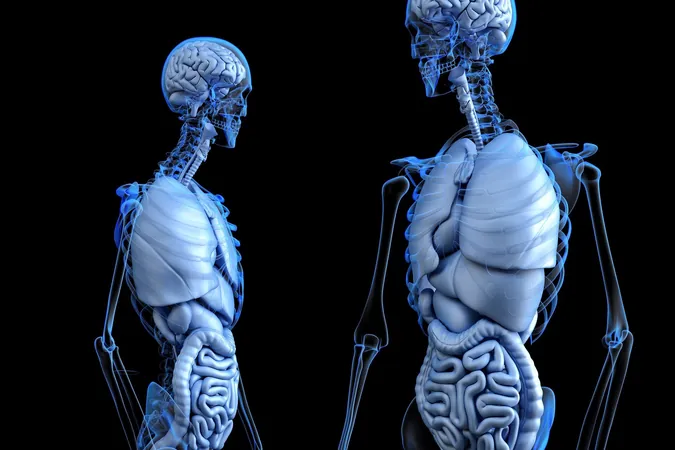
Celiac Disease: A Hidden Threat to Liver Health? New Study Reveals Alarming Connections!
2025-01-10
Author: John Tan
Groundbreaking Study on Celiac Disease and Liver Health
A groundbreaking study has revealed that patients with celiac disease may be at a significantly increased risk of developing chronic liver disease, a relationship that endures for at least 25 years post-diagnosis. These findings, published in The Lancet Regional Health—Europe, emphasize the vital need for healthcare providers to closely monitor liver health in individuals diagnosed with celiac disease.
Research Findings and Statistics
The research was conducted using data from the extensive Swedish ESPRESSO cohort, which included over 48,000 patients with biopsy-confirmed celiac disease alongside more than 231,000 matched individuals from the general population between 1969 and 2017. Over a median follow-up period of 16 years, it was found that patients with celiac disease exhibited a two-fold increased risk of developing any form of chronic liver disease compared to their healthy counterparts. This troubling association has resulted in one additional case of chronic liver disease for every 110 celiac-diagnosed patients over the 25-year span following their diagnosis.
Increased Risks with Autoimmune and Metabolic Disorders
Furthermore, patients with celiac disease who also suffered from concurrent autoimmune or metabolic-related disorders faced even greater risks. "While the absolute risk difference for liver disease appears small, the relative risks observed in cases of autoimmune liver disease and steatotic liver disease are striking," notes Jialu Yao, a Ph.D. student at the Karolinska Institutet and first author of the study.
Clinical Guidelines and Monitoring Recommendations
The findings align with recommended clinical guidelines which advocate for regular monitoring of liver enzyme levels in patients with celiac disease. "Healthcare professionals must be vigilant for signs indicating progressive liver disease and must educate their patients about the potential risk factors," advises the study’s senior author, Jonas F. Ludvigsson, a professor at the Karolinska Institutet and pediatrician at Örebro University Hospital. He emphasizes the importance of paying close attention to metabolic parameters, especially when patients start a gluten-free diet.
Understanding the Connection
The connection between celiac disease and chronic liver complications is believed to stem from a combination of genetic, immunological factors, and perhaps the nutritional imbalance associated with gluten-free diets. Yao urges that future research should delve deeper into these mechanisms to clarify the impact of dietary changes on liver health.
Call to Action for the Medical Community
With this new information, the medical community is urged to prioritize liver health assessments in celiac disease patients—ensuring a more comprehensive approach to their overall wellbeing. This study might just be the tip of the iceberg; as awareness grows, it ignites crucial questions about how celiac disease may affect other areas of health!

 Brasil (PT)
Brasil (PT)
 Canada (EN)
Canada (EN)
 Chile (ES)
Chile (ES)
 Česko (CS)
Česko (CS)
 대한민국 (KO)
대한민국 (KO)
 España (ES)
España (ES)
 France (FR)
France (FR)
 Hong Kong (EN)
Hong Kong (EN)
 Italia (IT)
Italia (IT)
 日本 (JA)
日本 (JA)
 Magyarország (HU)
Magyarország (HU)
 Norge (NO)
Norge (NO)
 Polska (PL)
Polska (PL)
 Schweiz (DE)
Schweiz (DE)
 Singapore (EN)
Singapore (EN)
 Sverige (SV)
Sverige (SV)
 Suomi (FI)
Suomi (FI)
 Türkiye (TR)
Türkiye (TR)
 الإمارات العربية المتحدة (AR)
الإمارات العربية المتحدة (AR)